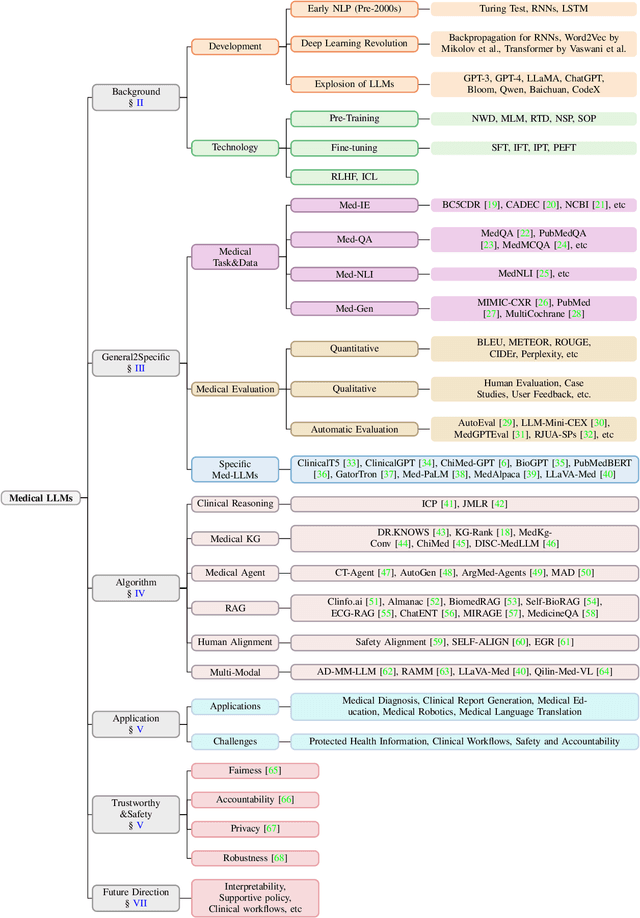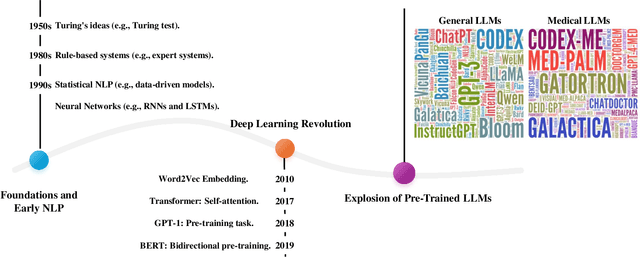A Survey on Medical Large Language Models: Technology, Application, Trustworthiness, and Future Directions
Paper and Code
Jun 06, 2024



Large language models (LLMs), such as GPT series models, have received substantial attention due to their impressive capabilities for generating and understanding human-level language. More recently, LLMs have emerged as an innovative and powerful adjunct in the medical field, transforming traditional practices and heralding a new era of enhanced healthcare services. This survey provides a comprehensive overview of Medical Large Language Models (Med-LLMs), outlining their evolution from general to the medical-specific domain (i.e, Technology and Application), as well as their transformative impact on healthcare (e.g., Trustworthiness and Safety). Concretely, starting from the fundamental history and technology of LLMs, we first delve into the progressive adaptation and refinements of general LLM models in the medical domain, especially emphasizing the advanced algorithms that boost the LLMs' performance in handling complicated medical environments, including clinical reasoning, knowledge graph, retrieval-augmented generation, human alignment, and multi-modal learning. Secondly, we explore the extensive applications of Med-LLMs across domains such as clinical decision support, report generation, and medical education, illustrating their potential to streamline healthcare services and augment patient outcomes. Finally, recognizing the imperative and responsible innovation, we discuss the challenges of ensuring fairness, accountability, privacy, and robustness in Med-LLMs applications. Finally, we conduct a concise discussion for anticipating possible future trajectories of Med-LLMs, identifying avenues for the prudent expansion of Med-LLMs. By consolidating above-mentioned insights, this review seeks to provide a comprehensive investigation of the potential strengths and limitations of Med-LLMs for professionals and researchers, ensuring a responsible landscape in the healthcare setting.
 Add to Chrome
Add to Chrome Add to Firefox
Add to Firefox Add to Edge
Add to Edge